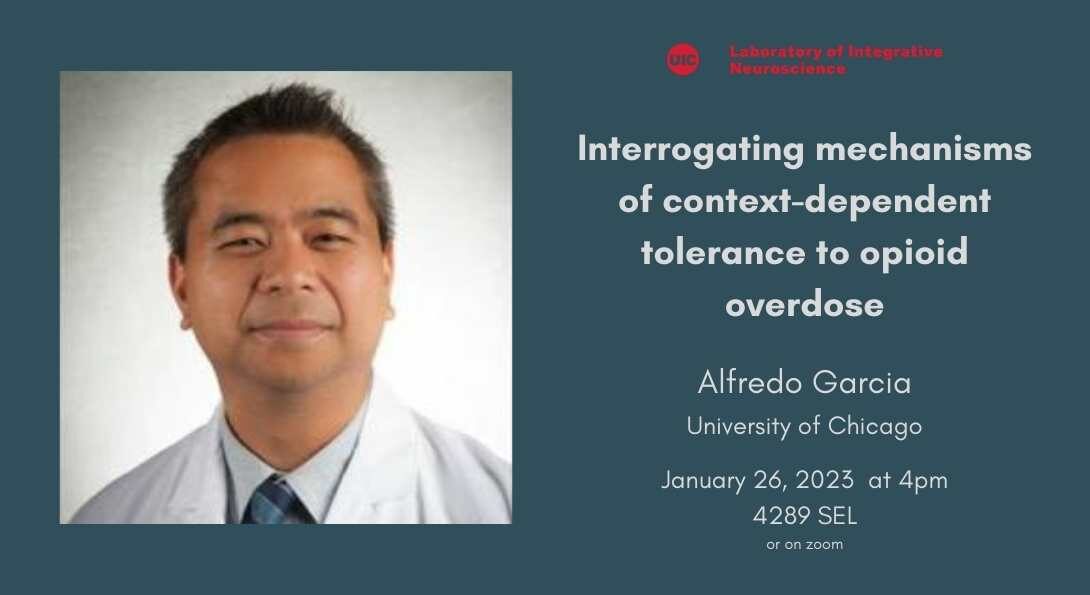LIN Seminar: “Interrogating mechanisms of context-dependent tolerance to opioid overdose” by Alfredo Garcia (University of Chicago)
January 26, 2023
4:00 PM - 5:00 PM

Location
4289 SELE
Calendar
Download iCal FilePlease join us on Oct. 6th at 4pm in SELE 4289 for "Interrogating mechanisms of context-dependent tolerance to opioid overdose" byDr. Alfredo Garcia (University of Chicago)
Learn more about Dr. Garcia here.
Host: Mitch Roitman
Abstract: The United States is in the midst of an opioid epidemic. Repeat opioid users, such as individuals suffering from substance use disorder, are at the greatest risk of opioid overdose. The primary cause of opioid overdose is respiratory depression and subsequent respiratory arrest. Although extensive understanding exists in the underlying neurophysiology causing acute OIRD, how repeat opioid use (ROU) impacts the control of breathing has been largely ignored and understudied. Repeat opioid users can exhibit tolerance to OIRD. However, this tolerance appears to be labile as susceptibility to overdose can be influenced by the context in which the drugs are used. This seminar focuses on ongoing research interrogating the neurobiological basis of tolerance to OIRD. We developed a mouse model for ROU that reproduces a physiological phenotype consistent with that observed in repeated opioid users—including a form of context-dependent tolerance. To date, our findings indicate ROU remodels the control of breathing through: (1) direct cellular changes in the respiratory network; and (2) the emergence of a tolerance dependent on behavioral conditioning. Context-dependent tolerance appears to involve conditioned compensatory responses that preserve respiratory chemoreflexes and enhance neuromodulatory activity from the Locus Coeruleus. These observations serve as a new foundation for understanding susceptibility to overdose in the ongoing opioid epidemic.
Date posted
Aug 3, 2022
Date updated
Oct 13, 2022